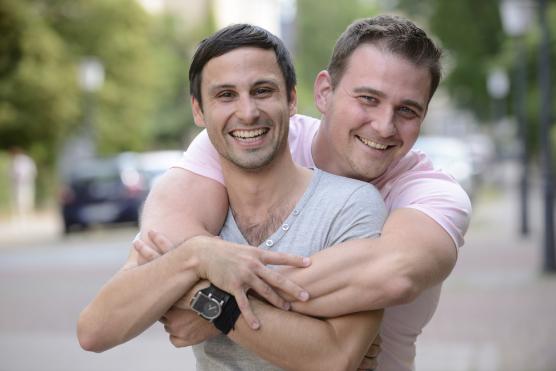The shooting of nine black parishioners at Mother Emanuel African Methodist Episcopal Church in Charleston, S.C., has prompted righteous outrage and incomparable grief. Black people were targeted and slain after extending grace and hospitality to a heartless white supremacist who allegedly killed them in one of the nation’s most storied black institutions. Weeks later, our hearts are still heavy.
Black churches like Mother Emanuel were founded against a backdrop of white racist terror. And so-called Christians whitewashed theology with anti-black racism, which is the reason some slave masters cited the Bible to support chattel slavery. It’s also the reason some white pastors organized church services so that black parishioners were physically separated from white church members during worship.
This is why the black church has long been a symbol of community building and collective striving, not separation, as it rightly critiqued segregated churches for their sin of racial division. The black church modeled the prophetic Christianity that would eventually challenge some white people to abandon their white supremacist theology.
And here we are again battling another form of Christian-sponsored bigotry. Several days after the tragic murder of the Emanuel 9, the Supreme Court ruled in favor of same-sex marriage, and church leaders throughout the country lambasted the decision. Scolding words hurled at LGBTQ (lesbian, gay, bisexual, transgender and queer/questioning) people followed. As Christians, we have a responsibility to preach a gospel of love. The willful maligning of LGBTQ people is not love.
We can’t count the number of times we’ve sat in pews or behind pulpits, heartbroken, as preachers admonished Christian believers to turn away from the “sin of homosexuality.” We can’t count the many moments we’ve watched believers shed repentant tears because they were tired of struggling against the “gay lifestyle.” We can’t accurately describe the torment and trauma that destroy the spirits and lives of our LGBTQ friends and family members. And we can’t apologize enough for the times that we, too, have preached, prayed and practiced homophobia.
The idea that homosexuality is an abomination has led some of our friends to confess their desire to die rather than displease God. And the reason one of us actually tried to kill himself.
There are ample resources available that challenge the common belief that homosexuality is a sin. Yet many refuse to challenge their assumptions. Truth is, no amount of counterarguments will undo the hegemonic stronghold of homophobia that turns God-loving believers into prophets (making profits) of hatred. And while most LGBTQ- and transgender-affirming perspectives begin with biblical interpretation, our primary question isn’t “What does the Bible say?” The critical question we need to ask is, “What do we say about the Bible?”
Scripture can free or cage us. The Bible contains many contradictory and morally reprehensible Scriptures and stories, but we can liberate our interpretations in just ways. Like white slave owners who used Scripture to justify the enslavement of black people, violent men have raped and beat women with an understanding that Scripture provides a rationale for their sexism and brutalizing assault. Wars, even genocide, have been justified through Scripture.
And yet Scripture has also been used to fight injustice. The same Bible used to justify chattel slavery is the same Bible that enslaved Africans used to imagine freedom. The same Scripture cited to keep women silent and submissive is the same Scripture that womanist and feminist theologians cite to critique sexism and misogyny. And the same biblical texts invoked to condemn same-sex love are taken from the same biblical text that queer Christians and their allies invoke to affirm their God-given sexualities.
Our LGBTQ brothers and sisters honor God by living in their truth. The antagonistic response of the church to their sexuality is violent and sinful. Truth is, it is the Christian church, not the LGBTQ community, that must repent. Indeed, the church must repent from the sin of homophobia.
Sin is separation. It separates us from God, our neighbors and our fullest, most liberated selves. Homophobia is sin. It mars the soul, fractures community and displeases God. But love is the force that frees us from sin. It removes the distance that oppression and institutionalized hatred create between us. Love frees us from the woes of white supremacy, the pangs of patriarchy and the horrors of homophobia.
To call homosexuality a sin is to call into question one’s entire being. It’s saying that there is something inherently evil about LGBTQ people that separates them from God. But there is nothing wrong with LGBTQ people. What’s wrong is homophobia.
Homophobia is fear, not faith. It is a matter of bigotry, not the Bible. Antagonism aimed at LGBTQ people is profane violence, not holy admonishment. Yet too many believe that God is pleased with their bias and brutal treatment of LGBTQ people.
The violent theologies, queer shaming and trans-despising sermonic rants are killing our people, both spiritually and physically. Yet the church continues to lift up “holy” blood-stained hands to a God it praises but fails to see in its queer and trans members. This is the epitome of sin.
If “God is love,” and homophobia is a form of lovelessness, then there’s no room for both loving God and hating our LGBTQ neighbors.
As black prophetic writer James Baldwin writes, “Love takes off the masks that we fear we cannot live without and know we cannot live within.” It’s time for the church to “come out”—out of its narrow-minded view of sexuality, out of its mask of false love, out of its sin.
















